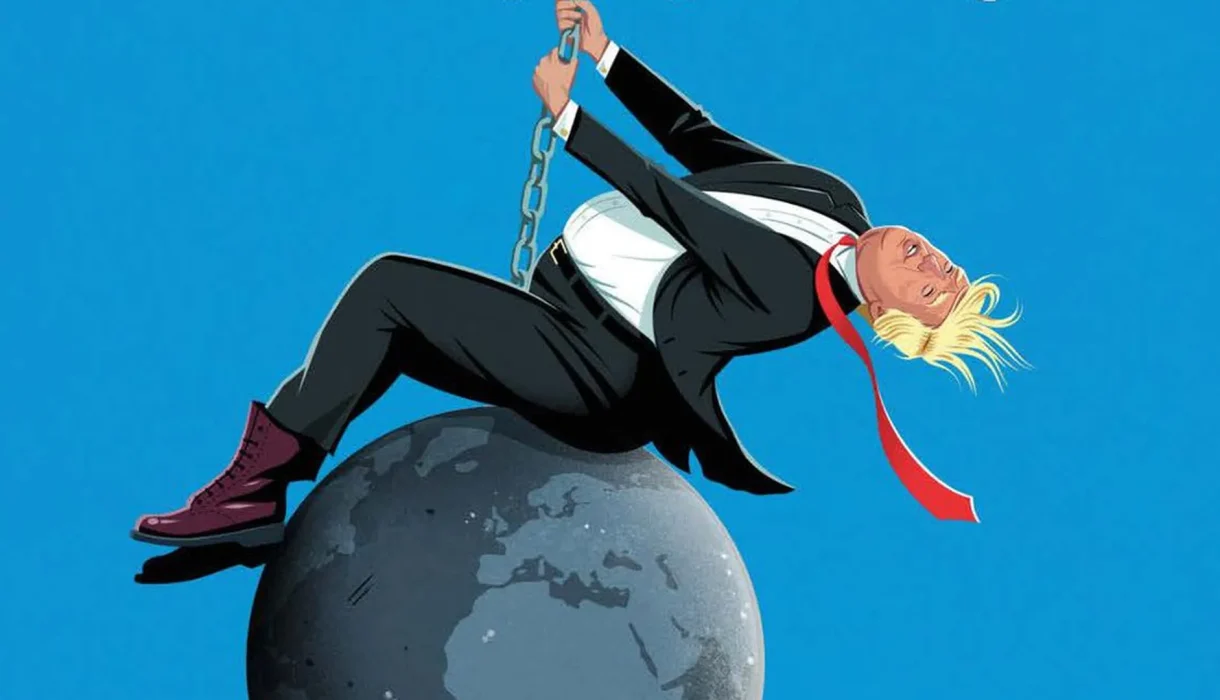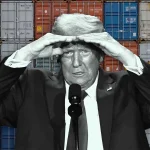
Wrecking Ball Policies and Whiplash Pardons: A Week That Shook U.S. Politics.
Posted in :
Elon Musk’s abrupt exit from DOGE, deadly foreign aid cuts, partisan chaos at town halls, controversial Trump pardons, and faltering Ukraine policy collided in a whirlwind week. From hospital wards in Africa to volatile headlines at home, the impact of Washington’s decisions has never felt more global—or more personal.
A tumultuous week in American politics, examining the aftermath of Elon Musk’s controversial stint as a government powerbroker, the fallout from abrupt cuts to global health programs like PEPFAR and USAID, public outrage at political town halls, Trump’s headline-grabbing presidential pardons, and shifting U.S. strategy on Ukraine. Expect sharp analysis, striking anecdotes, and a look at the very real human consequences at home and abroad.
There are weeks in politics that feel less like a procession of headlines and more like being caught in a high-stakes ping pong match—back and forth, each serve more unpredictable than the last. For those following the latest developments, this week delivered more curveballs than usual. Let me take you to a moment that stuck with me: I was chatting with an old college friend, now working in global health, who texted, ‘You wouldn’t believe how many programs we just had to shut overnight.’ That sense of disbelief threads through these stories—from the corridors of power to hospital wings in Africa to heated town halls across America.
Elon Musk, a Chainsaw in the Halls of Power
Elon Musk’s brief but seismic tenure as a special government employee officially ended this week, capping just over 130 days that left Washington reeling. Musk’s arrival in the executive branch was unprecedented—a private billionaire, unelected, yet wielding remarkable influence over federal policy and spending. His so-called “Doge team” swept through agencies with a mandate for streamlining, but the impact of funding cuts and foreign aid suspension has sparked fierce debate.
The numbers are staggering: Musk’s team claims $65 billion in savings from government streamlining, a figure that stands out even against the backdrop of a multi-trillion-dollar federal budget. But critics argue that these savings came at a steep cost. Agencies like USAID and the National Institutes of Health (NIH) reportedly faced “devastation,” with programs abruptly halted and staff left scrambling. The impact of funding cuts was especially acute in foreign aid, where the suspension of key initiatives, including HIV and tuberculosis programs, reportedly led to thousands of preventable deaths and widespread disruption.
“He got a lot done, but it wasn’t anything good.” That blunt assessment from The Washington Post’s Jonathan Capehart captures the mood among many in Washington. Critics point to massive data collection efforts and a “wrecking ball” approach that left federal agencies disoriented and, in some cases, paralyzed. Supporters, meanwhile, argue the true scale of the “wreckage” is overstated, emphasizing the need for government efficiency and fiscal restraint.
As the dust settles, questions linger about Musk’s legacy. Was the claimed $65 billion in savings worth the disruption? Did the foreign aid suspension and the impact of funding cuts undermine decades of progress in global health and development? For now, the answers remain elusive, but the shockwaves from Musk’s tenure are still being felt across the halls of power.
The Global Ripple: Cuts to USAID, PEPFAR, and the Human Toll
The fallout from recent PEPFAR funding cuts and USAID Medicaid cuts has sent shockwaves through global health systems, with the most devastating effects seen in Africa. According to data from Boston University, the interruption or elimination of US foreign aid has triggered a surge in HIV deaths Africa-wide, particularly among children. In just four months following the policy changes, an estimated 55,000 adults and 6,000 children have died of AIDS-related causes—a staggering figure attributed directly to the freeze on PEPFAR and USAID support.
According to the Boston University folks, so far, fifty five thousand adults have died of AIDS in the four months since Trump was elected. Six thousand children are dead because of what Doge did. That’s just PEPFAR, the HIV. You add them all up, that’s three hundred thousand dead, and we’re four months in.
These numbers, cited in recent transcripts, highlight the immediate and tragic human toll of US foreign aid cuts. The total death count, when factoring in related health crises like tuberculosis, exceeds 300,000 in just four months. Research shows that PEPFAR has saved an estimated 26 million lives over the past two decades by providing critical HIV prevention and treatment services. Yet, with the current PEPFAR funding freeze, mathematical modeling studies now predict up to 74,000 excess HIV deaths in Africa by 2030 if the cuts persist.
The crisis is especially acute for children’s HIV treatment. Studies indicate that nearly one in five infants with HIV who experienced treatment interruption in 2024 subsequently died. Administrative and logistical delays have only compounded the crisis, slowing efforts to restart lifesaving programs even where waivers exist. The ripple effects of these funding decisions are not just numbers—they are lives lost, futures cut short, and families left devastated. The global health community warns that if these trends continue, the death toll could climb into the millions.
Anger, Apathy, and Partisan Fault Lines at Home
Across the country, the impact of funding cuts and the looming threat of foreign aid suspension are fueling a wave of public outrage at political town halls. Both Republican and Democrat lawmakers are under fire, but the nature of the anger is shifting. As seen in recent reports, the frustration is not just about one issue—it’s a tangled mix of healthcare cuts, the so-called “big, beautiful bill,” and the ballooning national deficit.
Town halls have become flashpoints for grassroots activism. Constituents are showing up in force, demanding answers about the funding cut impact on federal programs and foreign aid. The anger is palpable. As one observer put it,
The anger among the electorate is… still there. It’s palpable.
Republican lawmakers, in particular, are facing criticism for avoiding these confrontations altogether. Their absence at town halls has not gone unnoticed, with voters expressing growing resentment. Meanwhile, Democrats are not immune. Their supporters are frustrated, urging them to do more—even as they acknowledge the party’s limited power in Congress and the White House. The sense of helplessness is clear: Democrats can slow things down, speak out, but little else.
Underlying all this is a broader anxiety about the economic fallout from recent policies. The Trump administration’s spending package is projected to increase the national debt by $6 trillion, while new steel tariffs are already impacting the price of consumer goods. These developments have only intensified concerns about the long-term impact of funding cuts and foreign aid suspension.
For now, the anger at town halls appears more Democratic than Republican. But as one analyst noted,
as time goes on, it’s going to become more and more bipartisan.
The political fault lines are shifting, and the next phase of public backlash may not respect party boundaries.
Unorthodox Pardons and the Changing Face of Mercy
This week, President Trump’s latest round of presidential pardons has drawn sharp scrutiny, not just for the breadth of recipients but for what critics say it reveals about the changing face of mercy in American politics. The list of those granted clemency reads like a cross-section of modern celebrity and infamy: reality TV stars, rappers, former politicians, and even a notorious Chicago gang leader. The choices have left many observers questioning the guiding principles behind these Trump pardons.
Traditionally, presidential norms around pardons emphasized rehabilitation, remorse, and a demonstrated commitment to reform. Yet, as one commentator noted, “This is not about so much about loyalty. Maybe with the reality TV stars, it’s about liking the president. But we know there is no loyalty is not a two-way street with this president. So it’s not about loyalty”. Instead, critics argue, the common thread appears to be personal connections, public praise, or even financial ties to the president and his circle.
The spectacle of these decisions has fueled accusations of favoritism and transactional politics. As highlighted in the transcript, some recipients were described as “sleazeballs”—individuals convicted of fraud, corruption, or bribery, rather than the reformed citizens typically considered for clemency. The move to pardon or commute sentences for such figures, including the suggestion that Trump might consider pardoning those convicted in the plot to kidnap Michigan’s governor, has further blurred the lines of criminal justice reform and presidential authority.
Observers warn that these unorthodox pardons could erode public trust in the institution of presidential mercy, setting a precedent where personal favor, rather than justice or repentance, becomes the deciding factor. The debate continues over what this means for the future of presidential pardons—and the standards by which they are granted.
Global Chess: The U.S., Putin, and Trouble in Ukraine
The Ukraine crisis has once again taken center stage, with President Trump’s shifting rhetoric drawing scrutiny both at home and abroad. Once touting his supposed leverage over Vladimir Putin and promising to end the war in Ukraine “on day one,” Trump has now pivoted to a more aggressive tone online, accusing the Russian leader of having “gone absolutely crazy” and “playing with fire”. Despite these public outbursts, the lack of concrete action—such as new sanctions or strategic pressure—has left many questioning the effectiveness of current Trump Ukraine policy.
Behind the scenes, the reality is even more complicated. Trump’s earlier claims of a special relationship with Putin have not translated into meaningful outcomes for Ukraine. As one observer put it,
“So the president can be president Trump can be as frustrated as he wants to be, but he only has himself to blame. He has not been serious at all about bringing a just conclusion to Russia’s war on Ukraine.”
Meanwhile, bipartisan calls for a tougher U.S. stance are growing louder. Some Republican senators have urged Trump to impose harsher sanctions on Russia, but so far, these demands have gone largely unanswered. The perception, both in Washington and among U.S. allies, is that Putin continues to outmaneuver American policy—capitalizing on indecision and inconsistency.
Further complicating the U.S. response are the tangled financial and diplomatic ties that blur the line between national interest and personal gain. Reports have surfaced about American officials, such as special envoy Steve Witkoff, being linked to Russia’s sovereign wealth fund. These entanglements raise questions about the integrity of U.S. Russia relations and the ability of policymakers to act decisively in the face of escalating aggression.
As the Ukraine crisis intensifies, the world watches to see whether U.S. leadership can move beyond rhetoric and deliver real results.
Conclusion: When the Distant Becomes Personal
This week in U.S. politics was a stark reminder that decisions made in Washington are never just abstract headlines—they are choices that carry real, often life-or-death consequences for people around the world. As David Brooks and Jonathan Capehart discussed, the abrupt agency cuts, sweeping pardons, and even a single tweet can send shockwaves from the corridors of power to the most unexpected corners: from children relying on HIV treatment in Africa to families in small-town Montana feeling the pinch of rising tariffs.
The funding cut impact is not just a budget line. Research shows that the dismantling of US government aid programs like PEPFAR has already led to tens of thousands of deaths—Boston University estimates 55,000 adults and 6,000 children have died of AIDS in just four months following the election. The lives saved estimate from these programs is staggering: over 26 million lives in two decades, with each dollar cut now measured in lost futures. The freeze on USAID’s tuberculosis response, too, has meant thousands more deaths, with a new life lost every seven minutes. These are not distant statistics; they are stories of parents, children, and communities upended by decisions made far away.
Meanwhile, the spectacle of high-profile pardons and the drama of economic policy shifts have left Americans at home feeling whiplash. Town halls echo with anger—some directed at absent lawmakers, others at the lack of legislative power to change course. The ripple effect of a “wrecking ball” approach to governance is felt not just in federal agencies, but in grocery bills, job security, and the daily lives of ordinary citizens.
In a week packed with spectacle and substance, the lesson is clear: policy is never just politics. It is personal, urgent, and immediate. The stakes—measured in lives saved or lost—demand vigilance, empathy, and a recognition that what happens in Washington does not stay there. It becomes the world’s reality, one decision at a time.
TL;DR: In just a few whirlwind days, power plays, policy pivots, and personal dramas barreled through Washington—upending global health, stirring up local outrage, and rewriting the rules of presidential mercy. It’s a case study in how politics gets personal, fast.
PEPFARFundingCuts, HIVDeathsAfrica, USAIDMedicaidCuts, Children’sHIVTreatment, USForeignAidLives, ImpactOfFundingCuts, HIVTreatmentInterruption, ForeignAidSuspension, HIVPreventionServices, TuberculosisPreventionPrograms,Trumpforeignaidcuts, ElonMuskDOGEagency, Trumppresidentialpardons, PEPFARHIVprogramdeaths, UkrainecrisisandTrumppolicy, USAIDcuts, HIVdeathsAfrica, governmentefficiency, bipartisanoutrage, globalhealthcrisis
#Trump foreign aid cuts, Elon Musk DOGE agency, Trump presidential pardons, PEPFAR HIV program deaths, Ukraine crisis and Trump policy, USAID cuts, HIV deaths Africa, government efficiency, bipartisan outrage, global health crisis,#ElonMusk, #DOGE, #ForeignAid, #TrumpPardons, #PEPFAR, #USAID, #GovernmentCuts, #TownHalls, #UkraineCrisis, #PoliticalChaos

